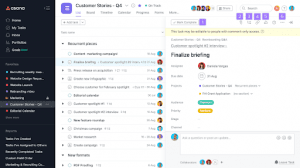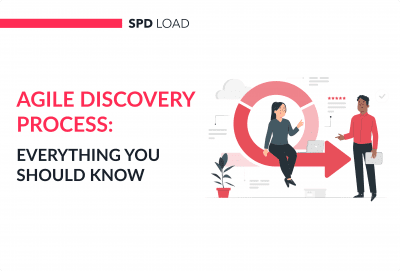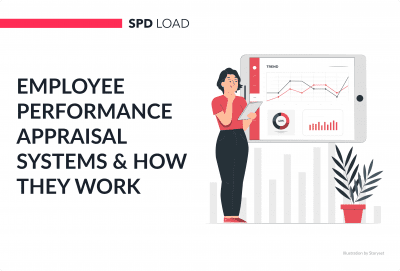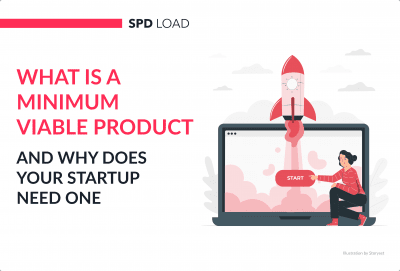Project Initiation Checklist: How to Get a Start on Your Projects
- Updated: Sep 27, 2025
- 7 min
Most teams face problems when they don’t plan their projects well enough. Because these teams don’t have a well-crafted project plan, they lose sight of what they want to accomplish and how they are supposed to get there.
A project initiation checklist serves as an overview of a project’s goals, what needs to be done, resources and tools needed, and potential risks. Following a checklist lessens mistakes and optimizes turn-around time and project cost.
Whether building a website or launching a corporate event, the following steps are crucial to making your project initiation checklist.
And if you are a project manager in healthcare, see this guide covering healthcare project management strategies & methodologies.
1. Define your objectives
What do you plan to achieve with the project? Defining the objectives of a project is part of its launch phase. This phase will help you plan with that goal in mind.
Most project managers prefer setting SMART goals—specific, measurable, achievable, relevant, and time-bound. Here are a few examples of SMART goals:
- Launch the app by Q4 of 2022
- Launch the company website by the end of this year
- Increase eCommerce sales by 50% by Q3 of 2023 (Discover eCommerce startup ideas that fit the latest trends and customer demands)
- Increase user count by 300% by Q2 of 2021
The nice thing about SMART goals is that you can break them down into smaller, more attainable goals. For example, if your goal is to launch an app by Q4 of next year, you need to identify its components and set a deadline for each of them. Doing this will give you more achievable goals you can accomplish in a few working days.
2. Identify Risks & Obstacles
Project managers should foresee what hiccups the project may run into.
A quick SWOT analysis will help you identify internal factors that could help your team succeed (strengths) or fail (weaknesses). It also allows you to list external factors you need to take advantage of (opportunities) or avoid/mitigate (threats). 
Once you’ve determined your potential threats and weaknesses, you may start plotting how you may deal with them. For your app development project, we may predict the following challenges:
- What if the freelance developers don’t deliver on the deadline?
- What if the proposed UX/UI design doesn’t fit the brand?
- What if the app doesn’t function on newer android versions?
However, some risks won’t reveal themselves until you start the project. You need to have a budget and time allocation for contingency for such instances.
Wondering about the cost of hiring a software developer? We break down what you need to know.
3. Create a To-Do List
List down the essential tasks needed to be done for your project’s success. This is breaking down the project into smaller actionable tasks for your team. 
A to-do list gives your team a path to take, considering the potential risks and maneuvering around them. For your app project, you might have the following to-do items.
- Create a User Flowchart
- Create the UX/UI
- Write copy for the UI
- Code the App
- Quality Test the App
- Create a Website for the App
Each department that you would delegate these tasks to can then break these down into more detailed to-do lists. For example:
- Create a Website for the App
- Gather and acquire relevant media
- Write homepage copy
- Determine your CTAs
- Create a sitemap
- Create a website wireframe
- Choose a web development agency
Having a to-do list will let the team know what’s been done and remind everyone about the project’s current progress.
Planning a crowdfunding platform? Learn what goes into crowdfunding website development.
4. Choose the Most Appropriate Tools
The project management software you choose should match your team’s needs. While you can use Google Sheets to track smaller projects with simple deliverables, complex projects require more sophisticated project management functionalities. If you’re looking for a free solution, you may use Trello or Asana to assign and track project tasks. Jira is also an excellent option for tech /software development projects. 
You will also need a platform where your team members may communicate and collaborate. Email is acceptable for file sharing, but I’ve found that a dedicated messaging and collaboration platform like Slack helps consolidate project resources in one place. It’s also a lot faster than emailing documents back and forth.
If you are thinking of creating a brand new messaging solution, check out this guide on how to create a messaging app step by step.
When your team is composed of freelancers and out-house web developers, you must select them carefully like you do your tools. For example, if you’re building a web portal connecting manufacturers and wholesalers, you may choose from the best industrial web design companies. If you’re building an app for the same purpose, you need to learn how to select a mobile app development company:
- Search for roles and skills on LinkedIn or Google
- Browse through their portfolios and ongoing projects
- Read client testimonials
- Inquire with them to discuss tailored solutions
Various departments assigned with various tasks would typically be more knowledgeable with the tools they need to use. Perhaps your web design team might favor Wix over WordPress or Trello over Asana.
However, you need to get them to agree on solutions they’ll use as part of your organization, such as chatting or video conferencing tools. By standardizing your tools, you offer the same set of features and ensure that your team members are ready to collaborate at a moment’s notice.
Considering custom WordPress website development? We explain the benefits and what it takes to get started.
5. Assign Roles and Responsibilities
You wouldn’t be doing the project on your own. You should have a team with each department well-versed in their given skill set. Assign roles based on the type of experience a person has and the scope of their department.
For an app development project, you could delegate the following tasks to the respective team members:
| Task | Assigned |
| Utilize imagery, write copy, wireframe the app, provide a sitemap | UX/UI Designer |
| Create application programming interface, optimize system components | Backend Developer |
| Optimize the app’s response times | Frontend Developer |
| Identify bugs, errors, glitches, and other possible inconveniences | QA Tester |
| Create the app’s landing page for marketing purposes | Web Developer |
You also need to list down who will approve each team member’s outputs. For smaller projects or teams, it could be yourself. However, you might need to delegate the approval to someone else for larger projects.
6. Establish KPIs (Key Performance Indicators)
For projects such as developing an app, you must first determine if the app is ready for public use. The initial KPIs you should measure should first assess the quality of your app. While these may be handled by your QA testers and frontend and backend developers, you should also know about these KPIs.
- Load Speed
- Crash Reports
You also need to look at internal factors such as:
- Average turnaround time per task
- Overall cost
Following the app post-launch, you should monitor your app to gather data on its performance. 
These KPIs are indicators of an engaging and well-developed app.
- Daily Users
- Session Length
- 7-Day Retention Rate
- Average Screens per Visit
The amount of downloads is more of a marketing KPI concerning conversion. It measures the effectiveness of your marketing collateral rather than the app itself.
Ideal KPIs would depend on the nature of your app and the capacity of your backend. A finance app would not necessarily have the same session length as a game. Look into the average KPIs for your app’s category, then measure your KPIs against the category standard.
From your KPIs, determine if your project is a success and use them to pinpoint any loose ends during the project development process.
Looking for effective marketing tools? Here are some top email marketing software platforms to consider for your business.
7. Keep an Eye on Progress and Deliverables.
More important than planning the project is making sure that stuff gets done. Familiarize collaborators with the task-managing software you’re using so they can effectively communicate progress to you.
Ask for updates from department leads. Message them regularly for progress reports so that if anyone’s dragging behind, you may push deadlines or take actions to mitigate delays. You can do this by setting email reminders at crucial points during the project.
Communication is critical in this step. Maintaining quick communication between departments and collaborators allows you to convey progress to key stakeholders directly.
8. Adapt and Improve Methodology
Once you’ve assessed your KPIs, it’s time to conclude whether the project was a success or a failure. Could things have gone better? Was there a miscommunication in a key task?
If KPIs reflected a lackluster project performance, pinpoint the root of the problem.
For your app, you ought to do the following:
- Gather user data such as age and gender
- Look into crash reports
- Listen and read to customer complaints
Based on your KPIs, you can ask yourself what worked and didn’t work. These insights will allow you to continuously improve your app and the way you develop its future iterations.
Bottom Line
However big or small a project is, you’ll need a project initiation checklist to ensure its success.
Define your objectives. Assess your strengths and weaknesses as a company, and from that, identify potential threats and obstacles. Then create a to-do list for your team and assign tasks according to your team’s skills.
Select the most efficient tools for the job, too. Monitor your KPIs to determine the success or failure of your project. Note, too, that communication is critical in projects.
Follow these tips and you’ll ensure the success of your project. Best of luck!
—————————————————————————————————————————–
Ian Loew is a web entrepreneur and inbound marketing expert, and the Owner & Head of Business Development of Lform Design.













